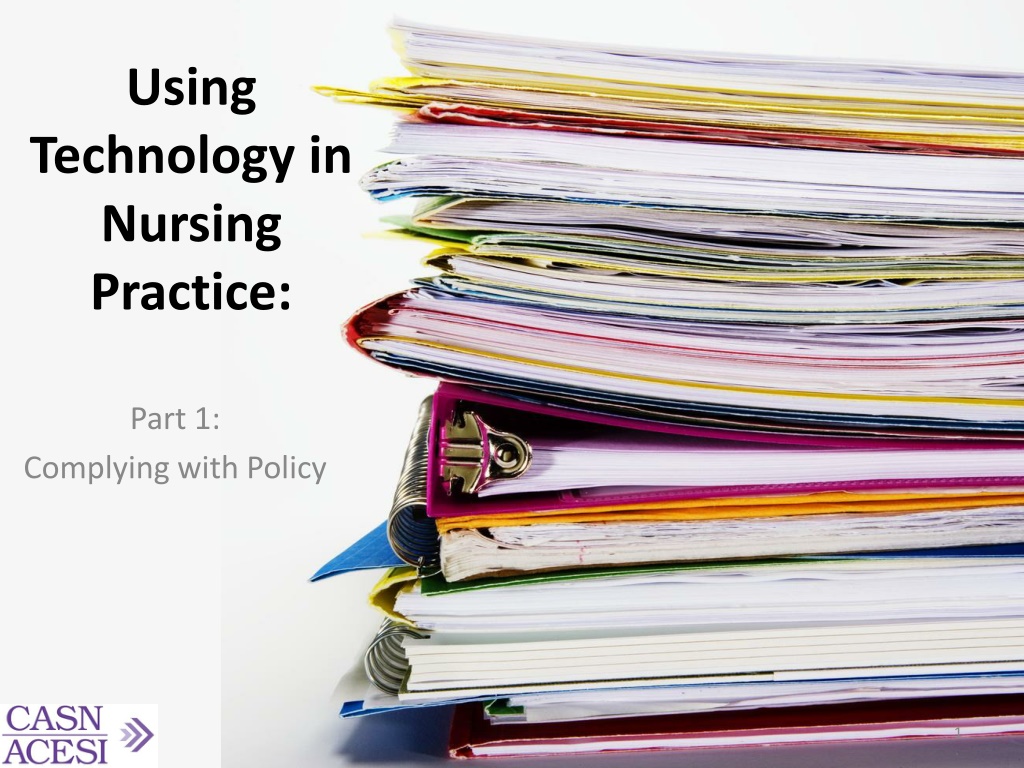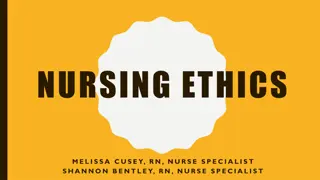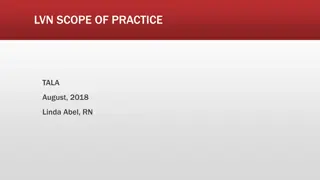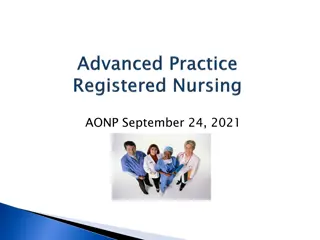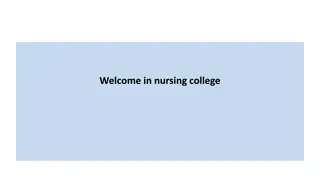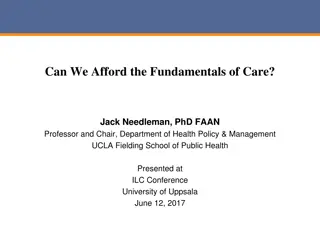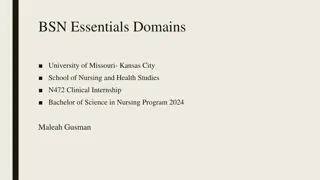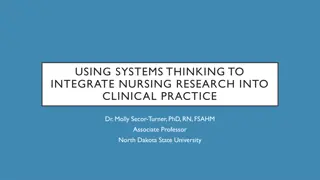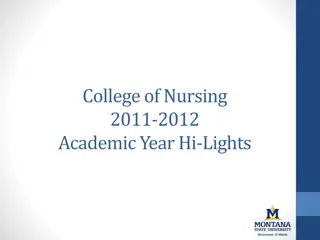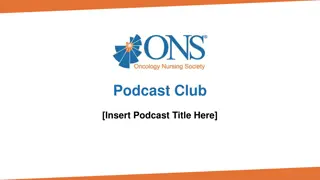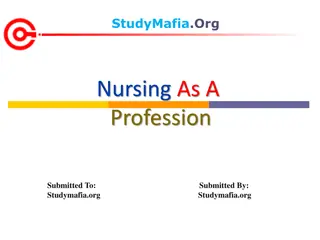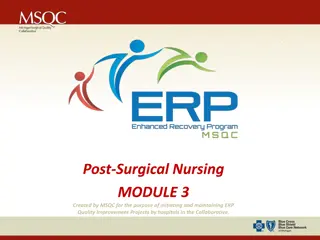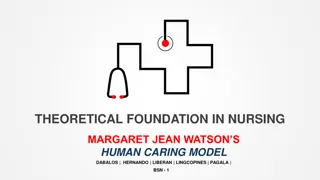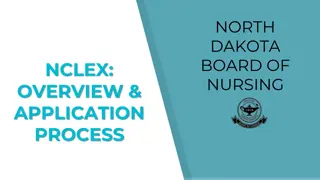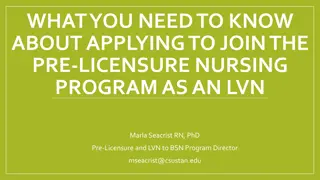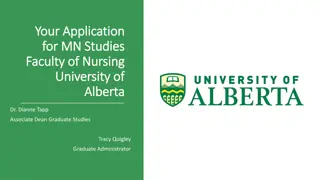Navigating Technology Policy in Nursing Practice
This content discusses the importance of complying with policies related to technology in nursing practice, focusing on protecting personal health information. It covers policy challenges regarding access to patient information, electronic transport and storage of health data, considerations for Canadian policy-makers, and federal legislation such as PIPEDA. A real-life example illustrates the application of PIPEDA in collecting personal medical information by an employer.
Download Presentation

Please find below an Image/Link to download the presentation.
The content on the website is provided AS IS for your information and personal use only. It may not be sold, licensed, or shared on other websites without obtaining consent from the author. Download presentation by click this link. If you encounter any issues during the download, it is possible that the publisher has removed the file from their server.
E N D
Presentation Transcript
Using Technology in Nursing Practice: Part 1: Complying with Policy 1
Agenda Considerations for policy- makers Policy for the protection of personal health information: National, provincial/territorial, nursing association, organizational 2
Policy Challenges 1-2 Who should be able to access patient/client information? How can or should that information be used? How can personal health information be transported electronically without compromising its safety? How can personal health information be stored electronically in a safe and secure way? 3
Considerations for Canadian Policy-makers1 Addressing: Variation in health care policies between different provinces and territories Variation in the electronic health records and clinical systems used across various provinces/territories and settings Outlining policies in detail, but not stifling creativity Engaging the right people 4
Federal Legislation 3 1. Privacy Act -regulates use of information by the federal government 2. Access to Information Act -regulates use of information stored in government records 3. Personal Information Protection and Electronic Documents Act (PIPEDA) * -regulates use of information by the private sector *provinces and territories with privacy legislation considered substantially similar to PIPEDA may be exempt 5
Video: Overview of PIPEDA for Individuals The following video outlines what PIPEDA means for individuals It is an educational tool created by the Canadian Association of the Deaf - highlighting the educational opportunities that health information and communication technologies present for nursing Insert video at: http://www.youtube.com/watch?v=5ePNbYJP7k4 (for English) or http://www.youtube.com/watch?v=HjUkkaUWHa8 (for French) 6
Real Life Example: Federal Legislation 4 PIPEDA Case Summary #2003-119: Employer's practice of collecting personal medical information to support a transfer request deemed appropriate Complaint: An employee of a telecommunications company complained that his employer was attempting to collect more personal information about him than necessary in order to determine if he could be accommodated in another position for medical reasons. Why does PIPEDA apply to this case? What is your conclusion about the collection and use of personal health information in this situation? 7
Nursing Example: Provincial Legislation 5 A registered nurse works for a private company involved in the manufacture of goods using chemicals that can be toxic to individuals after prolonged exposure. The nurse has been hired to regularly test employees of the company for levels of various toxins to determine whether it is safe for the employees to continue working under conditions where they are exposed to these chemicals. Once certain levels of toxins are detected in their blood, employees are transferred to other divisions of the company where there is no exposure to these chemicals. On a monthly basis, the nurse provides a report to the management of the company specifying whether it is safe for each employee to continue working under conditions of exposure. The information obtained by the nurse from testing of the employees is used for no other purpose. Is the nurse subject to the Act [Ontario s version of PIPEDA]? 8
Provincial/Territorial Nursing Standards 6 Each provincial and territorial licensing body has its own standards which outline the necessity of nurses maintaining confidentiality Example: Saskatchewan Registered Nurses Association: Standards and Foundation Competencies for the Practice of Registered Nurses : Standard III: Ethical Practice 80. Understands ethical and legal considerations in maintaining client confidentiality in all forms of communication: written, oral, and electronic. 9
National Nursing Standards 7 Canadian Nurses Association: Code of Ethics for Registered Nurses (2008) 10
Organizational Policies 8 Each organization will have to develop their own policies to ensure that they are meeting the national and provincial/territorial standards Policy points include: Definition of personal Protecting access Off-site access E-mail of information 11
Video: Privacy & Policy Insert video at: http://www.youtube.com/watch?v=Jq_fqDLg Hxc (real-life examples used to identify privacy issues with health information and communication technologies) 12
